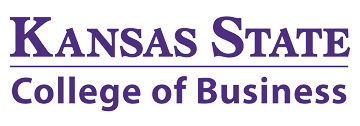The Top 5 MBA Programs in Kansas

Kansas is a small state, with a GDP of $167.7 billion and 270,212 businesses. However, its growing economy may serve as a great training ground for MBA professionals who want to develop their abilities and make a meaningful impact. Despite its relatively modest size, Kansas offers opportunities and challenges that can contribute to a well-rounded MBA experience.
The state’s biggest sectors include Manufacturing, Real Estate and Rental or Leasing, and Healthcare and Social Assistance. These industries offer a multifaceted environment for MBA professionals to apply their knowledge and skills. For instance, Kansas’s agriculture industry provides opportunities for supply chain management, agribusiness, and sustainable practices.
The manufacturing sector, including aerospace and automotive, offers MBA graduates opportunities in operations management, strategic planning, and innovation.

Furthermore, small and medium-sized enterprises offer various opportunities where MBA grads can play important roles in their growth and strategic initiatives. The less competitive atmosphere in the state can help aspiring business professionals build on their master’s degree knowledge to create a more attractive resume for more competitive business and finance atmospheres.
Here are five of the best Master of Business Administration (MBA) programs in Kansas with regional and programmatic accreditations. These programs will ensure you receive a high-quality education that aligns with the modern industries.
Top 5 MBA Programs in Kansas
School of Business – The University of Kansas

The state’s flagship university, the University of Kansas was officially established in 1866 with only 55 students enrolled. Despite the financial challenges and effects of the Civil War, KU expanded its educational reach, established more majors, and conducted its first commencement exercises in 1873.
Over the years, the University of Kansas has undergone significant campus expansion and modernization efforts. New buildings, research facilities, and student housing were added to accommodate the growing student population with evolving academic needs.
The KU School of Business is one of its 14 schools. Accredited by the AACSB, the KU business schools offer competitive and challenging business education programs at the undergraduate and graduate levels. It aims to prepare students for business and management careers by maintaining high standards and rigorous academic programs.
Furthermore, the school fosters knowledge creation and dissemination in a global environment. Alumni have built a strong community, including influential business leaders. The KU Alumni Association hosts events like “Dinner with a Dozen Business Hawks” and offers internships and jobs to students. The Business Career Fair attracts over 100 global companies annually, often featuring KU alumni representatives.
Students looking for an MBA degree can choose from KU’s two MBA programs:
KU’s MBA programs are designed to meet students’ needs, offering them complete control over their schedules. Whether you’re a working professional looking to balance your career with your studies through KU’s online MBA or a student seeking an immersive, accelerated experience with the full-time MBA, KU empowers you to create a learning path that aligns with your goals. Both programs provide an experienced career coach to guide you through the complexities of the modern business and finance industry, preparing you for leadership roles.
Most MBA students have internship opportunities in large-scale companies like AT&T, Microsoft, and JP Morgan Change & Company.
School of Business + Technology – Emporia State University

Emporia State University, established in 1863, was originally a teacher preparation school. Over the years, Emporia State expanded its academic offerings beyond teacher education to include a range of undergraduate and graduate programs. The university now offers over 130 majors, from the arts and sciences to business and technology degree programs.
Emporia State has seven schools, one college, and one institute dedicated to providing students with accredited and high-quality curricula that align with the demands of 21st-century employers. Each school and college has its own experiences as academic advisors that help students tailor their programs based on their interests and goals.
Among the most popular academic programs at Emporia State are found in its School of Business + Technology, which is accredited by AACSB International. The Emporia State School of Business prides itself on a 99% job placement rate, which demonstrates the school’s ability to help students land jobs even before graduation.
The School of Business offers various business education programs leading to bachelor’s and master’s degrees, including:
Online and on-campus students have the same curriculum requirements; the only difference is their delivery. Additionally, students will receive the same opportunities, such as networking, academic advising, and internships. Students can continue their traditional MBA with a concentration in Accounting or Information Systems, preparing them for positions requiring significant knowledge in these fields.
Among the most notable features of Emporia State School of Business is its BizHorney Center, a hub where students can take advantage of student services all year. While the programs are known for their affordability, with an estimated sticker price of $12,000 online and $12,600 on-campus. MBA students can apply for financial aid opportunities to reduce out-of-pocket costs.
Interested applicants must have an accredited bachelor’s degree in business, with a GPA no lower than 2.65. Non-business students can still apply to the program but must take prerequisite courses at Emporia State.
College of Business Administration – Kansas State University

Kansas State University aims to develop a skilled and educated citizenry for the well-being of Kansas, the nation, and the international community. Established in 1863 as an agricultural and mechanical arts college, the university developed its offerings into a comprehensive research and land-grant institution. K-State offers undergraduate and graduate degree programs, outreach and public service programs, and research and creative activities.
Furthermore, K-State’s land-grant mandate focuses on instructional, research, and extension activities, ensuring students are prepared for successful employment and contribute to advancing cultural, educational, economic, scientific, and socio-political endeavors.
K-State has 11 colleges and schools, including the College of Business Administration. The college offers over 20 undergraduate and graduate degree programs. MBA seekers can pursue a degree at K-State.
K-State MBAs are two-year programs accredited by the AACSB and ranked internationally for ethics, environmental, and social issues. It equips students with management skills, business knowledge, and entrepreneurship skills for success in any organization. Depending on your interests, experience, and goals, you can choose between the traditional and professional MBA.
The first MBA program at K-State can be completed online, on-campus, and in hybrid learning formats. This program allows students to have maximum control over their course schedules. The traditional MBA offers various concentrations, including Business Analytics, Finance, Marketing, Accounting, International Business, and Data Analytics.
The professional MBA can also be completed online, with an optional Study Abroad option that allows experienced business professionals to gain a global perspective. This path does not offer concentrations. However, PMBA students can pursue Microcredentals and Dual Degrees.
Whichever MBA route students choose, they’ll be assigned an academic advisor to help them navigate their graduate studies, land internship opportunities, and find a career placement.
Kelce College of Business – Pittsburg State University

Pittsburg State University is among the best universities for students who want to develop a connection with the community. PSU traces its origins to 1903. Back then, the university was dedicated to providing education in industrial arts and manual training. Today, PSU offers more than 200 academic programs.
One of its outstanding schools is the Kelce College of Business. This AACSB-recognized business school is known for its cutting-edge undergraduate and graduate programs designed for both experienced and inexperienced students. It offers a comprehensive, challenging curriculum that prepares graduates for the global business environment. With distinguished faculty, students gain real-world experience and numerous awards, ensuring quality education at an affordable price and emphasizing quality over quantity.
Interested MBA students can choose between the following MBA programs:
These MBA programs require students to complete a comprehensive MBA capstone to demonstrate their abilities to their peers and faculty. It covers management control systems, financial strategies, marketing analysis, strategic management, leadership, team-building, and tailoring the experience to individual interests and skills. The program also includes experiential exercises for practical application.
In addition to its known comprehensive learning opportunities, students can also enjoy the low-cost tuition of $11,850. MBA students can further reduce their total tuition cost by availing of financial aid opportunities.
Students who want to gain industry-specific skills can pursue a concentration.
Campus MBA concentrations:
Online MBA concentrations:
School of Business – Washburn University

Washburn University, established in 1865, was a charter of the Kansas Legislature. Washburn became a university in 1952 and offered a broader academic mission and a comprehensive range of programs. Washburn University has kept evolving and adapting to the ever-changing world of higher education in recent decades. The university has been acknowledged for its dedication to cutting-edge programs, community involvement, and academic success.
Today, Washburn offers over 140 programs leading to certificate, bachelor’s, and master’s degree programs. This expansive range caters to its student body’s varied interests and aspirations.
The School of Business at Washburn University is one of the top-performing business schools in Kansas. It offers several business education programs accredited by the AACSB, underscoring its commitment to meet the highest quality standards for business programs globally.
The Master of Business Administration program offered by Washburn University aims to develop students’ global perspectives and quantitative analysis, communication, leadership, strategic thinking, and computer technology skills. Students can complete the Washburn MBA via online or on-campus learning, or a mix of both, and learn from faculty members with real-world experience and professional connections.
Students can choose up to two electives to tailor their MBA experience, which includes an Independent Study Research Project in Business, Internship Experience, and Venture Creation. This opportunity allows students to develop keen skills in a specific industry, equipping them with a holistic understanding of the business landscape.
The Washburn MBA accepts students with and without business degrees. However, applicants must have a bachelor’s degree from a regionally accredited institution.
Frequently Asked Questions
Are MBAs in Kansas worth it?
Not only do accredited MBA programs in Kansas provide excellent value for money, but they also offer distinct advantages that make them stand out. The state’s vibrant business environment and diverse industries create a dynamic learning atmosphere for MBA students.
Kansas, known for its agricultural and manufacturing sectors, offers a unique business education environment with accredited MBA programs integrating real-world experiences and case studies. Moreover, the state’s tight-knit business community provides networking opportunities, and its strategic location in the heart of the US allows access to diverse industries and markets. MBA programs often collaborate with local businesses, extending beyond the immediate area.
How much is an MBA in Kansas?
The cost of an MBA program in Kansas depends on the institution’s type and delivery format. But in general, Kansas’s average cost of MBAs falls below the national average. Kansas is known for its affordability in education and cost of living. Some Kansas state universities, such as Pittsburg State University, offer a flat-rate tuition fee that charges the same amount of online tuition regardless of student residency.
Is there a downside to pursuing an MBA career in Kansas?
As we’ve established earlier, Kansas is not a big state. So, there might not be many opportunities for an MBA graduate here. Seaboard is the only Fortune 500 company in Kansas. However, there are 258,012 small businesses in Kansas, which provides various opportunities for MBA graduates to develop their practical skills and build on the knowledge they’ve learned during their graduate degrees.
How do graduates improve their chances of landing a career in Kansas with an MBA?
An MBA degree is a versatile degree that trains you to enter several industries. However, it might not be enough to land a high-paying job, especially in a state with limited job opportunities for MBA graduates. Here are several ways to stand out in the Kansas MBA job market:
Specialize in high-demand areas.
This is the most important step if you want various job opportunities with high pay. The most progressive industries in Kansas include agriculture, manufacturing, and healthcare. Consider tailoring your MBA programs to match the specific skills required for these industries.
Build a strong professional network.
Networking is very critical regardless of what industry you’re planning to work in. This is especially true for states with limited job opportunities, like Kansas. Several jobs are not announced and are only filled through connections. Network as much as possible with the community and other professionals to open doors to job opportunities and gain valuable insights.
Engage in internships and practical experience.
You gain practical experience through internships, part-time jobs, or consulting projects and apply your MBA knowledge in real-world situations. Doing so will set you apart from other candidates and demonstrate value to potential employers.
Stay informed about local business trends.
Stay updated on Kansas business trends, engage in industry publications, attend seminars, and continuously learn to demonstrate investment in the region and understand its unique challenges and opportunities.
Demonstrate leadership and initiative.
Kansas employers value candidates with leadership qualities and initiative. Participate in student organizations, community groups, or MBA programs, showcasing leadership roles and problem-solving skills.
Acquire additional certifications.
As mentioned, an MBA degree may not be enough. Many MBA graduates pursue additional professional certifications directly related to their industries. Professional certification equips you with better, more specialized skill sets to meet local job market demands. This will enhance your attractiveness to the top employers in Kansas.
Utilize career services.
The best MBA programs in Kansas offer various career services and job placement opportunities. Please take advantage of their services, which typically include resume building, interview preparation, and networking opportunities.
Be open to relocation within the state.
Not all areas in Kansas have limited job opportunities. Bigger Kansas cities will provide you with more options. You should always be open to relocation.
What’s the average pay of MBA professionals in Kansas?
According to ZipRecruiter, Kansas’s average annual MBA salary is $136,436. This is significantly lower than the national average. But since the cost of living in Kansas is 12% lower than the national average, this salary should be enough to have a decent living in the state.
You should consider applying for jobs in the state’s major cities for higher salaries. Kansas City MBA professionals earn an average of $174,088 annually, significantly higher than the national average. Following Kansas City are Overland Park with $163,696 and Colwich with $162,384 average annual salary.
Before you go, see the following: